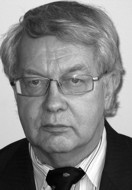Political Education in Estonian Schools 1920–2010
In Estonia people have many possibilities to take part in the political processes but they must have thorough knowledge and much free time for that.
The foundation for political literacy must be laid already at the general education school where it is possible to connect the theory and practice of political education. Education in democracy should establish a theoretical basis and give an overview of the main problems and concepts. There should also be relevant curricula and textbooks dealing with democratic processes and problems for the senior classes of basic schools and upper secondary schools. A curriculum that is based on social-scientific foundation and that can be used for interconnecting the pupil and the school, the citizen and the state and the theory and practice is actually also a theory for the development of a pupil. The curricula and textbooks currently used in Estonia have the same faults that can be noted in other countries and also in the concept of citizen education in Europe. The latter defines the main spheres, conceptions and values, but does not deal with the system of basic concepts. Therefore the mutual interconnections between an individual, the society and culture remain unopened. Acquiring the system of basic concepts helps a person use his or her possibilities and evaluate the activities and aspirations of politicians.
